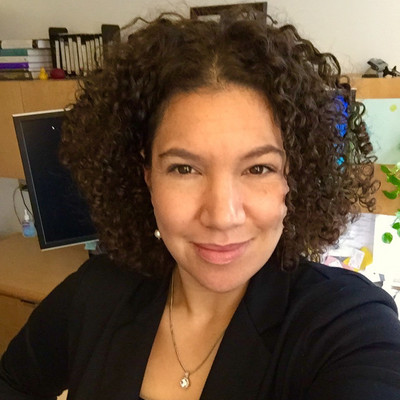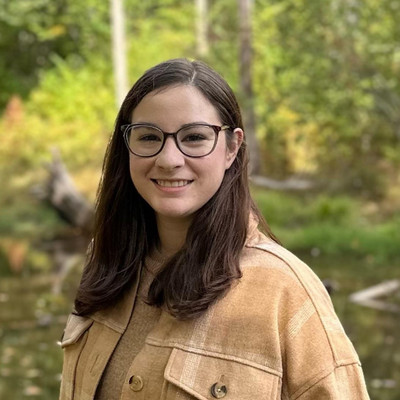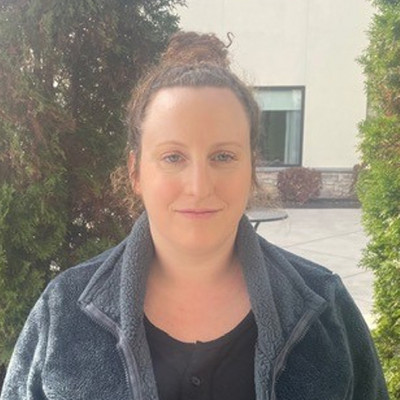
Melissa Rogel
Together, we will:
Help you better understand yourself, identify & change unhelpful thought loops, learn & practice ways to build self esteem and improve your relationships with others, process & begin to heal from past trauma.
View Profile
Are We a Match?
Take Our SurveyMelissa Rogel
Together, we will:
Help you better understand yourself, identify & change unhelpful thought loops, learn & practice ways to build self esteem and improve your relationships with others, process & begin to heal from past trauma.
Something to know about my approach is:
I am a supportive and validating listener and I work to provide concrete strategies to help you move forward. I'm trauma-informed and consider the impact of class, race, gender identity, sexuality, and other societal factors in our work together.
FOCUS AREAS:
- Adult ADHD
- Anxiety
- College Students
- LGBTQ+
- Purity Culture Recovery
- Religious Trauma


Miriam Zuroff
Together, we will:
Discuss the issues that brought you into therapy and the changes you would like to see in your life and the best ways to reach those goals. We will work at a pace that is comfortable for you and sometimes I will simply be a listening ear.
View Profile
Are We a Match?
Take Our SurveyMiriam Zuroff
Together, we will:
Discuss the issues that brought you into therapy and the changes you would like to see in your life and the best ways to reach those goals. We will work at a pace that is comfortable for you and sometimes I will simply be a listening ear.
Something to know about my approach is:
I am very eclectic implementing a mix of psychodynamic, cognitive behavioral and positive psychology techniques, I believe one approach does not work with all. I tailor-make treatment to meet the needs of each individual client or couple.
FOCUS AREAS:
- Anxiety Disorders
- Depression
- Grief
- Infertility
- Life Changes
- Obsessive-Compulsive Spectrum Disorders (OCSDs)
- Parent-Child Relationship
- Postpartum Depression
- Seasonal Depression


Eliana (Yana) Fisher
Together, we will:
understand how to support you toward growth and change.
View Profile
Are We a Match?
Take Our SurveyEliana (Yana) Fisher
Together, we will:
understand how to support you toward growth and change.
Something to know about my approach is:
that it is collaborative and individualized to meet your unique needs.
FOCUS AREAS:
- Anxiety Disorders
- Attention Deficit/Hyperactivity Disorder (ADHD)
- Child Behavior Issues
- Depression
- Healthcare Professionals
- Neurodivergence
- Oppositional Defiant Disorder (ODD)
- Parent-Child Relationship
- Teenagers
- Toilet Training


Allison Soellner
Together, we will:
Walk through the tough times and embrace the positive times. Whether we are discussing substance use, trauma, anxiety or everyday life stressors, I am committed to being with you each step of the way.
View Profile
Are We a Match?
Take Our SurveyAllison Soellner
Together, we will:
Walk through the tough times and embrace the positive times. Whether we are discussing substance use, trauma, anxiety or everyday life stressors, I am committed to being with you each step of the way.
Something to know about my approach is:
I enjoy utilizing a person-centered approach, meeting you exactly where you are. I want to create a space where you feel comfortable, valued and heard.
FOCUS AREAS:
- Anxiety Disorders
- Attention Deficit/Hyperactivity Disorder (ADHD)
- Depression
- Life Transitions
- Self-Esteem
- Stress
- Substance Use
- Women’s Health


Talia Palant
Together, we will:
In our therapeutic journey, we'll collaboratively explore your thoughts, emotions, and goals. Through tailored techniques and open dialogue, we'll foster self-awareness, resilience, and empower you to navigate life's complexities with confidence.
View Profile
Are We a Match?
Take Our SurveyTalia Palant
Together, we will:
In our therapeutic journey, we'll collaboratively explore your thoughts, emotions, and goals. Through tailored techniques and open dialogue, we'll foster self-awareness, resilience, and empower you to navigate life's complexities with confidence.
Something to know about my approach is:
I employ an integrative approach, combining evidence-based techniques with empathy and individualization. We navigate challenges together and foster self-discovery and coping strategies for lasting positive change.
FOCUS AREAS:
- Affair Recovery
- Aging and Getting Older
- Aging Parents
- Anxiety in Relationships
- Caregivers
- Couples
- Depressive Disorders
- Divorce and Separation
- Generalized Anxiety Disorder
- Life Transitions
- Recovery
- Relationship Conflict
- Relationship Distress
- Sibling Relationships
- Substance Abuse Intervention
- Substance Use
- Women

 OFFERS REMOTE THERAPY
OFFERS REMOTE THERAPY WAITLIST ONLY
WAITLIST ONLY ACCEPTING NEW CLIENTS
ACCEPTING NEW CLIENTS BILINGUAL THERAPIST
BILINGUAL THERAPIST